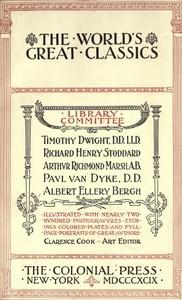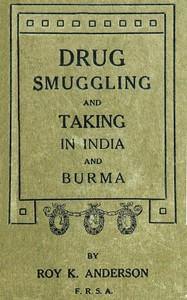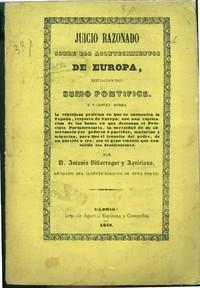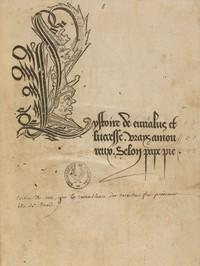Read this ebook for free! No credit card needed, absolutely nothing to pay.
Words: 177869 in 40 pages
This is an ebook sharing website. You can read the uploaded ebooks for free here. No credit cards needed, nothing to pay. If you want to own a digital copy of the ebook, or want to read offline with your favorite ebook-reader, then you can choose to buy and download the ebook.


: History of English Literature Volume 2 (of 3) by Taine Hippolyte Van Laun Henri Translator - English literature History and criticism
BOOK II--THE RENAISSANCE
INDEX
LONDON BRIDGE Etching from an original by Edwin Edwards
JOHN MILTON Photogravure from an etching
INITIAL LETTER FROM THE GIFFORD PSALTER Fac-simile Book Illumination of the Thirteenth Century
PRINTER'S MARK OF PHILIPPE LE NOIR Fac-simile example of Printing and Engraving in the Fifteenth Century
PAGE FROM THE CHRONICLES OF HUNGARY Fac-simile example of Printing and Engraving in the Fifteenth Century
HISTORY OF ENGLISH LITERATURE
The Christian Renaissance
"I would not," said Luther afterwards, "for a hundred thousand florins have gone without seeing Rome; I should always have doubted whether I was not doing injustice to the Pope. The crimes of Rome are incredible; no one will credit so great a perversity who has not the witness of his eyes, ears, personal knowledge.... There reigned all the villanies and infamies, all the atrocious crimes, in particular blind greed, contempt of God, perjuries, sodomy.... We Germans swill liquor enough to split us, whilst the Italians are sober. But they are the most impious of men; they make a mock of true religion, they scorn the rest of us Christians, because we believe everything in Scripture.... There is a saying in Italy which they make use of when they go to church: 'Come and let us conform to the popular error. If we were obliged,' they say again, 'to believe in every word of God, we should be the most wretched of men, and we should never be able to have a moment's cheerfulness; we must put a good face on it, and not believe everything.' This is what Leo X did, who, hearing a discussion as to the immortality or mortality of the soul, took the latter side. 'For,' said he, 'it would be terrible to believe in a future state. Conscience is an evil beast, who arms man against himself.'... The Italians are either epicureans or superstitious. The people fear St. Anthony and St. Sebastian more than Christ, because of the plagues they send. This is why, when they want to prevent the Italians from committing a nuisance anywhere, they paint up St. Anthony with his fiery lance. Thus do they live in extreme superstition, ignorant of God's word, not believing the resurrection of the flesh, nor life everlasting, and fearing only temporal evils. Their blasphemy also is frightful,... and the cruelty of their revenge is atrocious. When they cannot get rid of their enemies in any other way, they lay ambush for them in the churches, so that one man cleft his enemy's head before the altar.... There are often murders at funerals on account of inheritances.... They celebrate the Carnival with extreme impropriety and folly for several weeks, and they have made a custom of various sins and extravagances at it, for they are men without conscience, who live in open sin, and make light of the marriage tie.... We Germans, and other simple nations, are like a bare clout; but the Italians are painted and speckled with all sorts of false opinions, and disposed still to embrace many worse.... Their fasts are more splendid than our most sumptuous feasts. They dress extravagantly; where we spend a florin on our clothes, they put down ten florins to have a silk coat.... When they are chaste, it is sodomy with them. There is no society amongst them. No one trusts another; they do not come together freely, like us Germans; they do not allow strangers to speak publicly with their wives: compared with the Germans, they are altogether men of the cloister." These hard words are weak compared with the facts. Treasons, assassinations, tortures, open debauchery, the practice of poisoning, the worst and most shameless outrages, are unblushingly and publicly tolerated in the open light of heaven. In 1490, the Pope's vicar having forbidden clerics and laics to keep concubines, the Pope revoked the decree, "saying that that was not forbidden, because the life of priests and ecclesiastics was such that hardly one was to be found who did not keep a concubine, or at least who had not a courtesan." Caesar Borgia at the capture of Capua "chose forty of the most beautiful women, whom he kept for himself; and a pretty large number of captives were sold at a low price at Rome." Under Alexander VI, "all ecclesiastics, from the greatest to the least, have concubines in the place of wives, and that publicly. If God hinder it not," adds the historian, "this corruption will pass to the monks and religious orders, although, to confess the truth, almost all the monasteries of the town have become bawd-houses, without any one to speak against it." With respect to Alexander VI, who loved his daughter Lucretia, the reader may find in Burchard the description of the marvellous orgies in which he joined with Lucretia and Caesar, and the enumeration of the prizes which he distributed. Let the reader also read for himself the story of the bestiality of Pietro Luigi Farnese, the Pope's son, how the young and upright Bishop of Fano died from his outrage, and how the Pope, speaking of this crime as "a youthful levity," gave him in this secret bull "the fullest absolution from all the penalties which he might have incurred by human incontinence, in whatever shape or with whatever cause." As to civil security, Bentivoglio caused all the Marescotti to be put to death; Hippolyto d'Este had his brother's eyes put out in his presence; Caesar Borgia killed his brother; murder is consonant with their public manners, and excites no wonder. A fisherman was asked why he had not informed the governor of the town that he had seen a body thrown into the water; "he replied that he had seen about a hundred bodies thrown into the water during his lifetime in the same place, and that no one had ever troubled himself about it. In our town," says an old historian, "much murder and pillage was done by day and night, and hardly a day passed but some one was killed." Caesar Borgia one day killed Peroso, the Pope's favorite, between his arms and under his cloak, so that the blood spurted up to the Pope's face. He caused his sister's husband to be stabbed and then strangled in open day, on the steps of the palace; count, if you can, his assassinations. Certainly he and his father, by their character, morals, complete, open and systematic wickedness, have presented to Europe the two most successful images of the devil. To sum up in a word, it was on the model of this society, and for this society, that Machiavelli wrote his "Prince." The complete development of all the faculties and all the lusts of man, the complete destruction of all the restraints and all the shame of man, are the two distinguishing marks of this grand and perverse culture. To make man a strong being, endowed with genius, audacity, presence of mind, astute policy, dissimulation, patience, and to turn all this power to the acquisition of every kind of pleasure, pleasures of the body, of luxury, arts, literature, authority; that is, to form and to set free an admirable and formidable animal, very lustful and well armed--such was his object; and the effect, after a hundred years, is visible. They tore one another to pieces like beautiful lions and superb panthers. In this society, which was turned into an arena, amid so many hatreds, and when exhaustion was setting in, the foreigner appeared: all bent beneath his lash; they were caged, and thus they pine away, in dull pleasures, with low vices, bowing their backs. Despotism, the Inquisition, the Cicisbei, dense, ignorance, and open knavery, the shamelessness and the smartness of harlequins and rascals, misery and vermin--such is the issue of the Italian Renaissance. Like the old civilizations of Greece and Rome, like the modern civilizations of Provence and Spain, like all southern civilizations, it bears in its bosom an irremediable vice, a bad and false conception of man. The Germans of the sixteenth century, like the Germans of the fourth century, have rightly judged it; with their simple common-sense, with their fundamental honesty, they have, put their fingers on the secret plague-spot. A society cannot be founded only on the pursuit of pleasure and power; a society can only be founded on the respect for liberty and justice. In order that the great human renovation which in the sixteenth century raised the whole of Europe might be perfected and endure, it was necessary that, meeting with another race, it should develop another culture, and that from a more wholesome conception of existence it might educe a better form of civilization.
Thus, side by side with the Renaissance, was born the Reformation. It also was in fact a new birth, one in harmony with the genius of the Germanic peoples. The distinction between this genius and others is its moral principles. Grosser and heavier, more given to gluttony and drunkenness, these nations are at the same time more under the influence of conscience, firmer in the observance of their word, more disposed to self-denial and sacrifice. Such their climate has made them; and such they have continued, from Tacitus to Luther, from Knox to Gustavus Adolphus and Kant. In the course of time, and beneath the incessant action of the ages, the phlegmatic body, fed on coarse food and strong drink, had become rusty, the nerves less excitable, the muscles less strung, the desires less seconded by action, the life more dull and slow, the soul more hardened and indifferent to the shocks of the body: mud, rain, snow, a profusion of unpleasing and gloomy sights, the want of lively and delicate excitements of the senses, keep man in a militant attitude. Heroes in the barbarous ages, workers to-day, they endure weariness now as they courted wounds then; now, as then, nobility of soul appeals to them; thrown back upon the enjoyments of the soul, they find in these a world, the world of moral beauty. For them the ideal is displaced; it is no longer amidst forms, made up of force and joy, but it is transferred to sentiments, made up of truth, uprightness, attachment to duty, observance of order. What matters it if the storm rages and if it snows, if the wind blusters in the black pine-forests or on the wan sea-surges where the sea-gulls scream, if a man, stiff and blue with cold, shutting himself up in his cottage, have but a dish of sourcrout or a piece of salt beef, under his smoky light and beside his fire of turf; another kingdom opens to reward him, the kingdom of inward contentment: his wife loves him and is faithful; his children round his hearth spell out the old family Bible; he is the master in his home, the protector, the benefactor, honored by others, honored by himself; and if so be that he needs assistance, he knows that at the first appeal he will see his neighbors stand faithfully and bravely by his side. The reader need only compare the portraits of the time, those of Italy and Germany; he will comprehend at a glance the two races and the two civilizations, the Renaissance and the Reformation: on one side a half-naked condottiere in Roman costume, a cardinal in his robes, amply draped, in a rich arm-chair, carved and adorned with heads of lions, foliage, dancing fauns, he himself full of irony, and voluptuous, with the shrewd and dangerous look of a politician and man of the world, craftily poised and on his guard; on the other side, some honest doctor, a theologian, a simple man, with badly combed locks, stiff as a post, in his simple gown of coarse black serge, with big books of dogma ponderously clasped, a conscientious worker, an exemplary father of a family. See now the great artist of the age, a laborious and conscientious workman, a follower of Luther's, a true Northman--Albert D?rer. He also, like Raphael and Titian, has his ideal of man, an inexhaustible ideal, whence spring by hundreds living figures and the representations of manners, but how national and original! He cares not for expansive and happy beauty: to him nude bodies are but bodies undressed: narrow shoulders, prominent stomachs, thin legs, feet weighed down by shoes, his neighbor the carpenter's, or his gossip the sausage-seller's. The heads stand out in his etchings, remorselessly scraped and scooped away, savage or commonplace, often wrinkled by the fatigues of trade, generally sad, anxious, and patient, harshly and wretchedly transformed by the necessities of realistic life. Where is the vista out of this minute copy of ugly truth? To what land will the lofty and melancholy imagination betake itself? The land of dreams, strange dreams swarming with deep thoughts, sad contemplation of human destiny, a vague notion of the great enigma, groping reflection, which in the dimness of the rough woodcuts, amidst obscure emblems and fantastic figures, tries to seize upon truth and justice. There was no need to search so far; D?rer had grasped them at the first effort. If there is any decency in the world, it is in the Madonnas which are constantly springing to life under his pencil. He did not begin, like Raphael, by making them nude; the most licentious hand would not venture to disturb one stiff fold of their robes; with an infant in their arms, they think but of him, and will never think of anybody else but him; not only are they innocent, but they are virtuous. The good German housewife, forever shut up, voluntarily and naturally, within her domestic duties and contentment, breathes out in all the fundamental sincerity, the seriousness, the unassailable loyalty of their attitudes and looks. He has done more; with this peaceful virtue he has painted a militant virtue. There at last is the genuine Christ, the man crucified, lean and fleshless through his agony, whose blood trickles minute by minute, in rarer drops, as the feebler and feebler pulsations give warning of the last throe of a dying life. We do not find here, as in the Italian masters, a sight to charm the eyes, a mere flow of drapery, a disposition of groups. The heart, the very heart is wounded by this sight: it is the just man oppressed, who is dying because the world hates justice. The mighty, the men of the age, are there, indifferent, full of irony: a plumed knight, a big-bellied burgomaster, who, with hands folded behind his back, looks on, kills an hour. But the rest weep; above the fainting women, angels full of anguish catch in their vessels the holy blood as it trickles down, and the stars of heaven veil their face not to behold so tremendous an outrage. Other outrages will also be represented; tortures manifold, and the true martyrs beside the true Christ, resigned, silent, with the sweet expression of the earliest believers. They are bound to an old tree, and the executioner tears them with his iron-pointed lash. A bishop with clasped hands is praying, lying down, whilst an auger is being screwed into his eye. Above, amid the interlacing trees and gnarled roots, a band of men and women climb under the lash the breast of a hill, and they are hurled from the crest at the lance's point into the abyss; here and there roll heads, lifeless bodies; and by the side of those who are being decapitated, the swollen corpses, impaled, await the croaking ravens. All these sufferings must be undergone for the confession of faith and the establishment of justice. But above there is a guardian, an avenger, an all-powerful Judge, whose day shall come. This day has come, and the piercing rays of the last sun already flash, like a handful of darts, across the darkness of the age. High up in the heavens appears the angel in his shining robe, leading the ungovernable horsemen, the flashing swords, the inevitable arrows of the avengers, who are to trample upon and punish the earth; mankind falls down beneath their charge, and already the jaw of the infernal monster grinds the head of the wicked prelates. This is the popular poem of conscience, and from the days of the apostles man has not had a more sublime and complete conception.
What remains to be done after this renovation of the heart? Nothing: all religion is in that: the rest must be reduced or suppressed; it is a personal affair, an inward dialogue between God and man, where there are only two things at work--the very word of God as it is transmitted by Scripture, and the emotions of the heart of man, as the word of God excites and maintains them. Let us do away with the rites that appeal to the senses, wherewith men wished to replace this intercourse between the invisible soul and the visible judge--mortifications, fasts, corporeal penance, Lent, vows of chastity and poverty, rosaries, indulgences; rites serve only to smother living piety underneath mechanical works. Away with the mediators by which men attempted to impede the direct intercourse between God and man--namely, saints, the Virgin, the Pope, the priests; whosoever adores or obeys them is an idolater. Neither saints nor Virgin can convert or save us; God alone by His Christ can convert and save. Neither Pope nor priest can fix our faith or forgive our sins; God alone instructs us by His word, and absolves us by His pardon. No more pilgrimages or relics; no more traditions or auricular confessions. A new church appears, and therewith a new worship; ministers of religion change their tone, the worship of God its form; the authority of the clergy is diminished, and the pomp of services is reduced: they are reduced and diminished the more, because the primitive idea of the new theology is more absorbing; so much so, that in certain sects they have disappeared altogether. The priest descends from the lofty position in which the right of forgiving sins and of regulating faith had raised him over the heads of the laity; he returns to civil society, marries like the rest, aims to be once more an equal, is merely a more learned and pious man than others, chosen by themselves and their adviser. The church becomes a temple, void of images, decorations, ceremonies, sometimes altogether bare; a simple meeting-house, where, between whitewashed walls, from a plain pulpit, a man in a black gown speaks without gesticulations, reads a passage from the Bible, begins a hymn, which the congregation takes up. There is another place of prayer, as little adorned and not less venerated, the domestic hearth, where every night the father of the family, before his servants and his children, prays aloud and reads the Scriptures. An austere and free religion, purged from sensualism and obedience, inward and personal, which, set on foot by the awakening of the conscience, could only be established among races in which each man found within his nature the conviction that he alone is responsible for his actions, and always bound to the observance of his duty.
Free books android app tbrJar TBR JAR Read Free books online gutenberg
More posts by @FreeBooks

: Drug Smuggling and Taking in India and Burma by Anderson Roy K - Drug addiction India; Drug addiction Burma; Drug traffic India; Drug traffic Burma


: Juicio razonado sobre los acontecimientos de Europa situacion del Sumo Pontífice y tambien sobre la ventajosa posicion en que se encuentra la España respecto del resto de Europa by Villarragut Y Aquiriano Antonio - Pius IX Pope 1792-1878; Spain Politics






